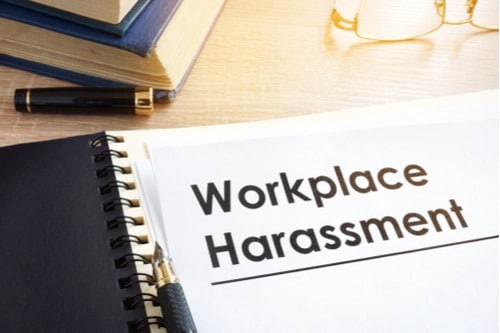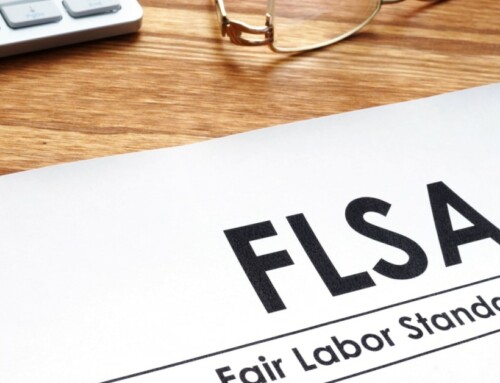Allegations of workplace harassment can present significant liability risks for employers. Harassment is considered a form of discrimination under South Carolina and federal nondiscrimination laws, and the acts of a single employee can potentially put an entire company’s finances and reputation in jeopardy. With this in mind, in addition to adopting anti-harassment policies and procedures, companies in South Carolina should also proactively prepare to defend against allegations of workplace harassment when necessary.
Proactively Preparing to Respond to Allegations of Workplace Harassment
While employers in South Carolina can (and should) take various measures to reduce their risk of facing workplace harassment claims, employers do not have the ability to prevent these claims entirely. Even if an employer adopts sound policies and procedures, and even if the employer provides adequate training to its workforce, there is still a risk that individual employees will elect to engage in prohibited behavior.
In order to address this risk, employers can (and should) adopt protocols for responding to allegations of workplace harassment. When faced with allegations of harassment, responding promptly and effectively can itself be an effective means of mitigating any potential liability. While each employer must adopt protocols that are specific to its unique operations and workforce, broadly speaking, some of the key steps companies should be prepared to take in response to allegations of workplace harassment include:
1. Acknowledge and Accept the Complaint
Employers should have documented procedures for employees to report allegations of workplace harassment. When a complaint gets filed, the organization should acknowledge receipt, and it should make clear that the complaint will be taken seriously. Ignoring allegations or dismissing them out of hand is a common mistake that can make it much more difficult to assert a successful defense.
2. Take Appropriate Remedial Action
If there is any indication that the harassment conduct is ongoing or may be repeated, the organization should take appropriate remedial action promptly. Depending on the circumstances involved, this may involve placing the alleged offender on leave, moving the alleged offender or the complainant to a different department, or various other means of ensuring adequate separation between the employees involved.
3. Engage Law Enforcement if Necessary
If the allegations are criminal in nature, the company may need to engage law enforcement. If unsure whether to engage law enforcement, the management, or in-house counsel should consult with outside employment law counsel promptly.
4. Conduct an Internal Investigation
In the substantial majority of circumstances, it will be necessary to conduct an internal investigation. Typically, this will involve interviewing the complainant, the accused, and any employees who may have knowledge pertaining to the complainant’s allegations, reviewing relevant communications, reviewing surveillance camera footage, and examining any other sources of evidence that may be available. As with all employment-related investigations, the focus at this stage should not be disproving the complainant’s allegations, but rather gaining an unbiased understanding of the events that occurred.
5. Impose Discipline as Warranted
If the investigation indicates that the complainant’s allegations are true, then management will need to impose appropriate discipline on the alleged offender. While terminating the alleged offender’s employment might be the right approach in some
cases, management should carefully weigh all options with the advice of counsel in order to make an informed decision.
6. Evaluate Potential Outcomes and Consider Alternatives
Based on the outcome of the internal investigation, it will be possible to evaluate the potential outcomes of any litigation that may ensue. Are the complainant’s allegations substantiated? Does it appear that the allegations were fabricated? Is there a legitimate question as to whether or not the employer is liable? Depending on the answers to these types of questions, management can make decisions about whether to consider settlement or begin preparing a defense.
7. Begin Formulating a Defense Strategy
Finally, if the complainant files suit, or if it appears likely that the complainant will file suit, then the organization may have no choice but to begin formulating its defense strategy. In this scenario, the organization’s leaders and in-house lawyers should work with outside counsel to determine how best to approach the circumstances at hand.
Possible Defenses to Allegations of Workplace Harassment
Depending on the specific circumstances involved, there are a number of possible defenses to allegations of workplace harassment. Employers facing these allegations should carefully evaluate all potential defenses and formulate a cohesive defense strategy that takes into account the specific facts and uncertainties at hand. Some examples of possible defenses to allegations of workplace harassment include:
- It Didn’t Happen – Of course, the strongest defense to allegations of workplace harassment is being able to prove that the alleged harassment never took place. If the complainant’s allegations are false, and if this can be proven through testimony or other evidence, then the company should not be at risk for liability. Often, however, allegations of harassment involve competing claims by the complainant and accused and a lack of corroboration for either side from witnesses.
- The Behavior Does Not Rise to the Level of Harassment – Not all types of unwanted or seemingly impermissible conduct rise to the level of harassment. If, based on the circumstances involved, the conduct in question does not give rise to a cause of action, this should provide a strong defense as well.
- The Complainant Welcomed the Behavior – In appropriate cases, it can be a defense to show that the complainant welcomed the behavior in question. In order to constitute harassment, the complained-of behavior must be unwanted and perpetrated without the complainant’s consent. Employers should be aware, however, that determining whether the conduct was welcome is often difficult and maybe a question for a jury absent “smoking gun” evidence.
- The Company Met Its Obligations – If an employer takes “immediate and appropriate corrective action” in response to allegations of workplace harassment, this can provide a complete defense in some cases. However, in other cases, the simple fact that the harassment occurred can be enough to establish employer liability.
Contact the South Carolina Employment Lawyers at Gignilliat, Savitz & Bettis LLP
At Gignilliat, Savitz & Bettis LLP, we bring more than 50 years of experience to representing South Carolina employers in harassment-related matters. If you want to make sure your organization is prepared, or if your organization is facing allegations of workplace harassment, call 803-799-9311 or contact us online to speak with our South Carolina employment lawyers in confidence.






